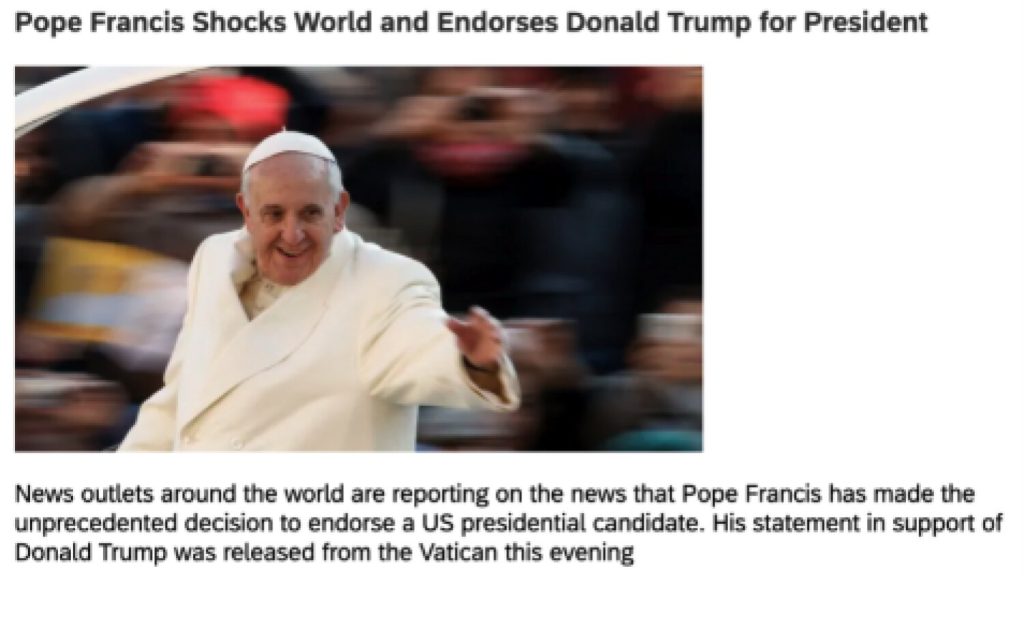Listen to the article
New research from the University of Colorado Boulder reveals that adults aged 55 and older share significantly more political misinformation on social media compared to younger users, but not because they struggle to identify fake news.
The comprehensive study, which examined nearly 2,500 adults across the United States and Brazil, found that increasing age correlates with stronger partisan attitudes, which can cloud judgment when evaluating news content.
“We found that older people are more likely to believe as true and to share information that aligns with their party, whether that information is true or not,” explained Leaf Van Boven, professor in the Department of Psychology and Neuroscience at CU Boulder and senior author of the study.
The research, published November 3 in the Journal of Experimental Psychology: General, challenges previous theories about why older adults spread more misinformation online. Earlier studies documented that Facebook users over 65 shared almost seven times more fake news than those under 30 during the 2016 U.S. presidential election, while on Twitter, users over 50 were responsible for 80% of fake news sharing.
Some researchers had attributed this trend to age-related cognitive decline, suggesting older adults might be more easily duped due to decreased analytical thinking abilities. Others pointed to difficulties distinguishing paid advertisements from objective news. However, other evidence contradicts these explanations, with a recent meta-analysis of 31 studies concluding that older adults actually outperform younger people at identifying fake news.
To investigate these conflicting findings, Van Boven collaborated with Guilherme Ramos, now an assistant professor at the Rochester Institute of Technology, who was a visiting Ph.D. student from Brazil’s FGV-EBAPE when the study began. Their timing was strategic, coinciding with misinformation waves surrounding the 2022 U.S. midterm elections and Brazil’s controversial presidential runoff between Lula da Silva and Jair Bolsonaro.
The research methodology involved showing participants political news headlines from their respective countries, some favoring conservative viewpoints and others favoring liberal perspectives. Without participants’ knowledge, certain headlines had been flagged as false by fact-checking organizations.
Examples included the widely circulated but false headline “Pope Frances shocks world and endorses Donald Trump for President” in the U.S. and the equally false “Bolsonaro wants to cut 25% of civil servants’ salaries” in Brazil. Participants indicated how likely they would be to share each headline on social media and, in a follow-up experiment, whether they believed the claims were true or false.
Contrary to expectations, the researchers found no evidence suggesting older adults have diminished analytical thinking abilities or struggle to distinguish authentic news from misinformation. Instead, the results revealed that individuals 55 and older demonstrated considerably stronger partisan attitudes that influenced their assessment of headlines’ accuracy.
“They had different standards of evaluating evidence depending on whether it reflected well on their side or not,” Van Boven noted. The study suggests older adults become more skeptical when news portrays the opposing side favorably, while showing less critical evaluation of information that supports their preferred candidates or parties.
This pattern intensified with age and held consistent across political parties in both countries, despite Brazil’s multi-party system with approximately 30 political parties, compared to America’s two dominant parties.
“This suggests that the two-party system is not necessarily the issue here,” Ramos observed. “People in Brazil behave in the same partisan way.”
The findings have important implications for addressing online misinformation. While many current interventions focus on helping people distinguish truth from fiction, Van Boven suggests equal attention should be given to encouraging less partisan behavior in social media communications.
The researchers recommend that social media users critically examine their posting habits and consider how political biases might influence their evaluation of news. Ramos also advises against “unfriending” those with differing political views, emphasizing that cross-ideological contact is “critical for a healthy democracy.”
As misinformation continues to challenge democratic discourse globally, this research provides valuable insights into addressing its spread among demographic groups most likely to amplify it, highlighting that solutions must address partisan motivations rather than just fact-checking skills.
Fact Checker
Verify the accuracy of this article using The Disinformation Commission analysis and real-time sources.




8 Comments
This is an alarming trend that deserves attention. Older adults may be more susceptible to misinformation due to factors like declining cognitive abilities or social isolation. Addressing this issue should be a priority.
Agreed. Targeted educational campaigns and support systems for older adults could go a long way in curbing the spread of misinformation within this demographic.
The partisan attitudes finding is really interesting. I wonder if echo chambers and confirmation bias play a role in older adults’ tendency to share misinformation. More research is needed to fully understand this phenomenon.
This is an important study. Older adults may be more vulnerable to misinformation due to cognitive changes, social isolation, or other factors. Improving digital literacy across all age groups seems crucial.
You make a good point. Digital literacy programs targeted at older adults could be very beneficial in combating the spread of misinformation.
While the findings are concerning, I’m glad researchers are examining this problem. Tackling misinformation requires a multi-pronged approach to address the complex psychological and social dynamics at play.
This is a concerning study, but not entirely surprising. Older adults may be more vulnerable to misinformation due to a range of factors. Developing effective interventions should be a priority for policymakers and tech companies.
Interesting findings on older adults and political misinformation. I wonder what factors might contribute to this trend, beyond just partisan attitudes. Perhaps media literacy education could help address the issue.